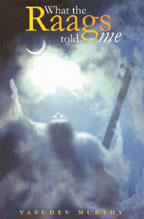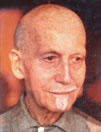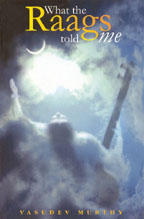
Today is my son Sarang's Birthday! He is 11 now!!!
Happy Birthday to a Wonderful Son!
Read about my published work, my ideas about music and other interests. Links to Literary Resources.


The Greek Philosophers, Aristotle, Plato and Socrates knew a thing or two about the value of music and how it relates to the functioning of society at large. Does that sound improbable? Read on.
Socrates (469-399 BC) was the 'original' philosopher who questioned the citizens of Athens on just about every possible matter. Ultimately he was accused of corrupting the youth by an insecure administration that did not appreciate dissent, and was forced to drink hemlock and die. Though he was not particularly fond of music all his life, he suddenly grew to appreciate it in his death cell. He spoke more than he wrote, so we rely on the transcriber for his comments in Phaedus
"In the course of my life I have often had intimations in dreams that I should make music. The same dream came to me sometimes in one form, and sometimes in another, but always saying the same or nearly the same words: Make and cultivate music, said the dream. And hitherto I had imagined that this was only intended to exhort and encourage me in the study of philosophy, which has always been the pursuit of my life, and is the noblest and best of music."
Plato (427-347 BC) had developed very strong views on the value of music, to the point where he urged rulers to consider traditional music to be the first fortress of the state. In his The Republic a series of fascinating dialogues between individuals, we find this gem
And what shall be their education? Can we find a better than the
traditional sort? --And this has two divisions, gymnastic for the body,
and music for the soul.
True.
Shall we begin education with music, and go on to gymnastic afterwards?
By all means.
And when you speak of music, do you include literature or not?
I do.
And he condemns the reckless introduction of new kinds of music, fearing that the very foundation of the nation-state might be affected (he ascribed this to Socrates, incidentally)
...Then to sum up: This is the point to which, above all, the attention of our rulers should be directed, --_that *music* and gymnastic be preserved in their original form, and no innovation made_. They must do their utmost to maintain them intact. And when any one says that mankind most regard the newest song which the singers have, they will be afraid that he may be praising, not new songs, but a new /kind/ of song; and this ought not to be praised, or conceived to be the meaning of the poet; for any *musical *innovation is full of danger to the whole State, and ought to be prohibited. So Damon tells me, and I can quite believe him; -he says that when modes of *music* change, _of the State always change with them_.
Aristotle (384-322 BC), was a protégé of Plato and considered a teacher of Alexander the Great. Clearly influenced by Plator, he made several important observations.
In Book 8 of Politics, Aristotle dwells on music and how it ultimately relates to the formation of a higher quality of polity. He rhetorically questions the value of teaching music: "It is not easy to determine the nature of music, or why any one should have a knowledge of it....Or again, if music should be used to promote cheerfulness and refined intellectual enjoyment, the objection still remains- why should we learn ourselves instead of enjoying the performances of others?".
He then answers: "For innocent pleasures are not only in harmony with the perfect end of life, but they also provide relaxation. And whereas men rarely attain the end, but often rest by the way and amuse themselves, not only with a view to a further end, but also for the pleasure's sake, it may be well at times to let them find a refreshment in music.....Enough has been said to show that music has a power of forming the character, and should therefore be introduced into the education of the young. The study is suited to the stage of youth, for young persons will not, if they can help, endure anything which is not sweetened by pleasure, and music has a natural sweetness."
With these and additional arguments, he holds that:
..better the character (of the people, developed by the study of music), the better the government."

WHAT THE RAAGS TOLD ME. By Vasudev Murthy. [Rupa & Co. Pp. 128. Rs. 295].
Music affects listeners in different ways. But, to an extent, the effect on informed rasika-s can be said to be uniform or at least similar. However, most listeners do not stop to analyse the mental picture created by any particular raga. True, there are events where an artist puts on canvas the emotions apparently aroused by a concert in progress. But one can say with reasonable certainty that no two artists will present the same picture under identical conditions. There are differences in perception even within a broad spectrum of emotions that may be shared by most.
Vasudev Murthy, a management consultant by profession, is also a violinist trained under both the Carnatic and the Hindustani systems. In the latter, he has trained under no less an artist than the late V.G. Jog. The book shows the profound influence that music has had on Murthy. He has fantasized to the extent that he lets his spirit roam and fetch him the persona of this or that raga. The form the raga takes is the personification of the emotions created by it in the author. Thus, he likens Jaijaiwanti to a mature, beautiful, loving woman, a mother, in fact. Jogiya becomes a half-crazed, ill-clad, frenetic man, impatient to be absorbed by the absolute. Raga Bhairav is Lord Siva. Chandrakauns brings to the author his daughter as she was in her younger days. And so on, covering 20 raga-s in all. And each of the raga-s tells the author about itself, its swara-s and its relative importance.
To appreciate the pictures presented by the author would of course require that the reader have a basic knowledge of the raga-s discussed and their swara-s and sanchara-s. Given that, the reader will be able to evoke in his mind what the author has projected and perhaps agree with it. But there are bound to be differences in the feelings created in different minds but this does not matter. For instance, this reviewer would have thought of a somewhat different representation for Jogiya, one more given to a plaintive appeal and near despair. But Murthy's word pictures certainly make one think about what exactly one or the other raga does to him.
Not an 'easy' read but surely a thought provoking one.
PCJ

"At one of these dinners I met Paul Brunton who had written a book called A Search in Secret India. When I read this book it had a profound influence on me. In it I learned for the first time about Ramana Maharshi, a great Indian saint and sage. It was as though some emanation of this saint was projected out of the book to me. For days and nights after reading about him I could not think of anything else. I became, as it were, possessed by him. I could not even talk of anything else."



But why, instead of putting the thread through the eye of the needle, should the Japanese maiden slip the eye of the needle over the point of the thread?From









